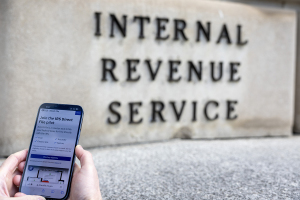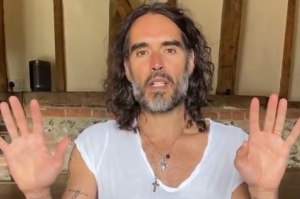Contested Stem Cell Bill Would Pour Money into 'Bad Science,' Say Christian Groups
Christian groups are criticizing a new bill that would allow for greater federal funding of embryonic stem cell research as wasting tax dollars on "bad science" that is also unethical.
"This over-hyped research would drag money and attention away from what patients really need – ethical treatments that work," complained Wendy Wright, president of Concerned Women for America, in a released statement.
Opponents of the bill sponsored by Senate Majority Leader Harry Reid (D-Nev) have argued that not only is research using embryonic stem cells unethical because it destroys embryos in the extraction process, but it also fails to show the breakthrough results promised by supporters after decades of research.
"What makes S.5 (Reid's bill) even more troubling is the fact that embryonic stem cell research is such 'bad science,'" said the Rev. Patrick J. Mahoney, director of the Christian Defense Coalition, in a statement. "The overwhelming body of evidence has indicated that stem cells derived from sources other than embryos have shown far more promise."
Proponents of the bill contend that since embryonic stem cells are more pluripotent, or versatile, it is easier to trick the cells into becoming a greater number of cell lines than non-embryonic stem cells. Supporters have defended the research by claiming that embryonic stem cells are the only hope for finding cures for diseases such as Alzheimer's, Parkinson's, and diabetes and spinal-core injuries.
However, Dr. David Stevens, Christian Medical Association's CEO, argued, "Creating human embryos and harvesting their stem cells, ostensibly for disease treatments, is a highly speculative, impractical and unethical proposition."
Stevens, whose organization is the nation's largest faith-based association of physicians, fears that if the bill is passed researchers will harvest embryos purely for experimental needs.
"Besides the moral wrongs of killing embryos and exploiting women, this bill would also divert precious healthcare funds away from ethical and effective research using stem cells found in the patient's own body, and also in cord blood, amniotic fluid and placenta," said Stevens, in a statement. "Such non-embryonic stem cell research does not harm human embryos and is already producing real therapies for real patients in over 70 different disease and injuries."
Another drawback of embryonic stem cell research is that since the cells are able to differentiate into more cell lines, they are also more likely to become tumor cells.
The Stem Cell Research Enhancement Act (S.5) is expected to pass the Senate this week but President Bush has vowed to veto it.
This is the second attempt by Congress in the last two years to allow federal tax dollars to fund embryonic stem cell. Bush had cast his only veto during his presidency last year to oppose a bill similar to the current S.5 bill.
If the Senate is able to override the President's promised veto, the legislation would overturn a Bush policy in 2001 that said federal funds can only be used for research on limited stem cell lines that were already exiting before his announcement.
On the other hand, Bush is expected to sign an alternative bill sponsored by Sen. Johnny Isakson (R-Ga.) that would permit public funding for studies on embryos incapable of developing into fetuses.
The Bush administration said in a statement Tuesday the alternative bill, which is also moving toward a Senate vote this week, would encourage research that does not harm budding human life.
"The administration does not believe science and ethics need be at odds," the statement said.
The Isakson bill would also prohibit taxpayer money from being spent on the creation of embryos for research purposes.





























